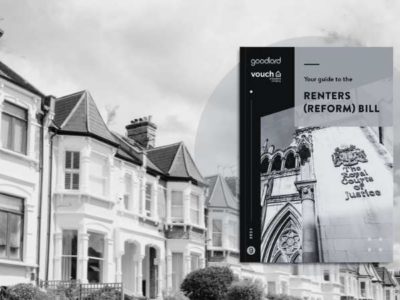With those on tracker mortgages seeing significant hikes in their monthly repayments, homeowners without the safety net of a fixed-rate mortgage may be considering moving to a new deal.
However, with some experts predicting that interest rates could decrease after peaking in 2023, there is a possibility that a tracker mortgage could result in lower monthly payments, and more money saved in the long term. But do British homeowners think it’s worth the risk?
As part of their mortgage statistics report, the experts at Uswitch.com surveyed over 2,000 UK homeowners to investigate how homeowners from different age groups were utilising the potential of tracker mortgages.
| 18-24 | 25-34 | 35-44 | 45-54 | 55+ | |
|---|---|---|---|---|---|
| Tracker mortgage | 17.82% | 4.15% | 3.72% | 7.47% | 6.56% |
| Fixed-rate mortgage | 41.58% | 80.73% | 79.84% | 70.84% | 56.56% |
| Standard variable rate mortgage | 25.74% | 11.96% | 13.49% | 20.24% | 35.66% |
| Discounted mortgage | 14.85% | 3.16% | 2.95% | 1.45% | 1.23% |
Tracker mortgages are much more popular for homeowners aged 18-24, as 17.82% took on the risk of fluctuating interest rates influencing their monthly repayments, 13.67 percentage points more than 25-34 year olds.
Standard variable rate (SVR) and discounted mortgages are also much more popular for 18-24 year olds, at 25.74% and 14.85% respectively.
While fixed-rate mortgages are the most popular across all age brackets, they are utilised far less by the youngest homeowners.
At least half of every other age bracket has a fixed-rate mortgage – with 4 in 5 (80.73%) of 25-34 year olds choosing this rate – but only 41.58% of 18-24 year olds opted for this deal.
At 7.47%, 45-54 year olds are the second most likely to choose tracker mortgages.
While far less likely than 18-24 year olds (17.82%), 45-54 year old homeowners are twice as likely to opt for a tracker deal than 35-44 year olds, the least likely of any age group analysed (3.72%).
Standard variable rate mortgages are also more popular with 45-54 year olds, as 1 in 5 (20.24%) have taken these mortgage plans.
SVRs also pose potential risks, as the interest rates are dictated by the lender themselves, rather than the Bank of England.
More than 1 in 5 (6.56%) of those 55 or older have taken tracker mortgages, and the potential benefits and risks that come with it.
While only 56.56% opted for a fixed-rate mortgage, they were still less likely to have tracker deals than 45-54 year olds, despite 70.84% of them having a fixed-rate plan.
This is because over a third (35.66%) of those 55 or older chose a standard variable rate mortgage, the most analysed in the study and 23.70 percentage points more than 25-34 year olds.
Monthly mortgage repayments by age
| 18-24 | 25-34 | 35-44 | 45-54 | 55+ | |
|---|---|---|---|---|---|
| Average Monthly Payment |
£1,390 |
£874.35 |
£849.92 |
£786.89 |
£763.79 |
On average, 18-24 year olds spend £1,390.90 a month in mortgage repayments, the highest of all age brackets.
This is 59% more than 25-34 year olds, where the average monthly payment is £874.35 and the second most expensive repayment.
In fact, this difference becomes greater the larger the age gap. Those 55 and older have the cheapest monthly payments, averaging just £763.79.
This is 45% less than the average monthly repayments for 18-24 year olds.
How can you manage your finances when applying for a new mortgage?
- Give your finances a health check: a good credit history is essential to getting a good mortgage deal, so be sure to check your credit report for the full picture of all your outstanding debts.
It’s vital to make sure that all the information is correct, as any mistakes may hurt your chances of securing a loan.
- Try to reduce spending: not only does lowering your spending help save for a deposit, but fewer outgoing payments may also help your chances of being accepted for a loan.
Review any direct debits or standing orders you have set up and see where it’s possible to cut back.
- Apply with caution: Don’t be tempted to make multiple mortgage applications just to see what kind of offers you can get.
Every time you apply for a mortgage, the lender will perform a hard credit check which can affect your credit score.
Instead, consider talking to a mortgage broker to get a better understanding of what deals are the right fit for you.





















Comments